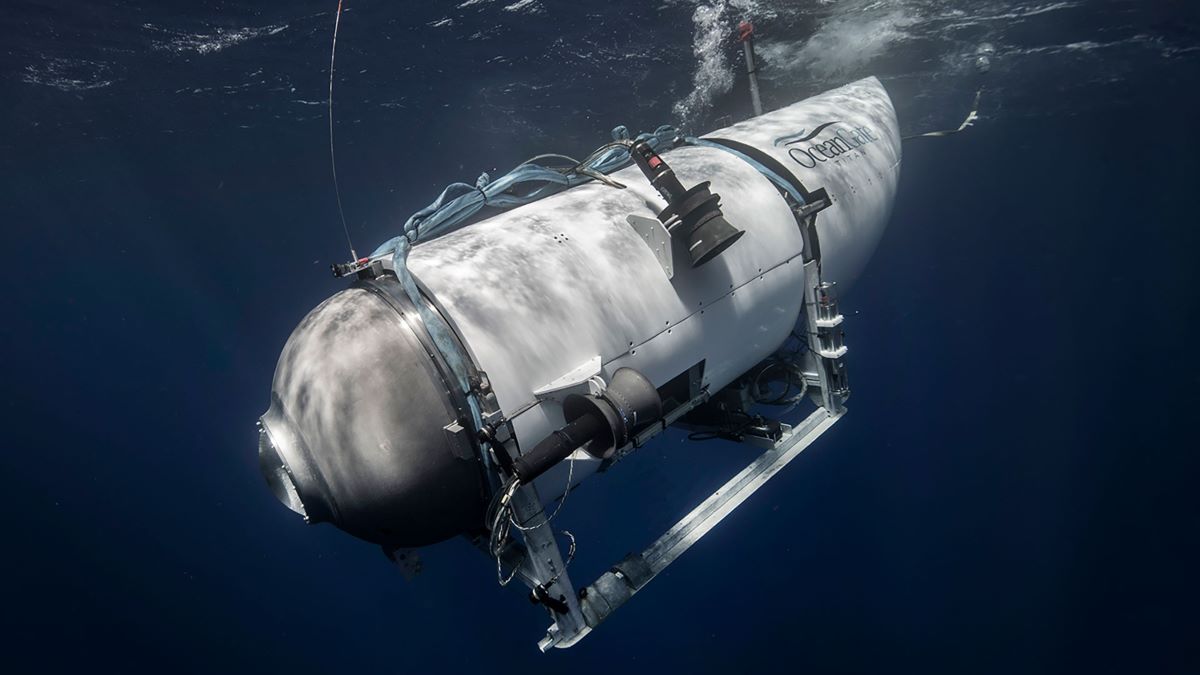When it comes to the Titan submersible tragedy, the widely accepted theory based on evidence that has come to light is that the vessel imploded underneath the ocean during a voyage that was meant to explore the ruins of the Titanic. But the question remains: do we actually know when that implosion happened? Let’s take a look at all of the evidence that has come available to find the answer.
Earlier in the week, the status of the Titan was not widely known by the general public. All we really knew was that communication had been lost for the vessel. This inevitably led to news reports that the five passengers of the Titan could still be alive but trapped underneath the ocean in some way. It would only be several days later that we would find out the horrific truth of what happened.
Rather than being a slow-burn demise in which the crew steadily ran out of their oxygen supply, as was once thought, the Coast Guard’s discovery of some debris that was found at the bottom of the ocean led them to make the public announcement that the 21-foot vessel experienced a “catastrophic loss of the pressure chamber” and imploded. While the presence of the debris did not carry with it a specific time stamp for when the implosion actually happened, more evidence soon became public, pinpointing a timeline for the disaster.
It turns out that underwater sensors operated by the U.S. Navy detected a sound on Sunday, which officials revealed Thursday was likely the implosion event in question, according to NPR. As per the report, “The Navy detected ‘an anomaly consistent with an implosion or explosion’ in acoustic data taken from the same area where the Titan went missing.”
James Cameron: Rescue mission amounts to ‘false hopes’
If the current theory is correct, the sound detected by the Navy means the vessel imploded on the same day as its initial launch, with all five of its passengers now presumed dead. The Navy also “immediately relayed that information to on-scene commanders leading the search effort, and it was used to narrow down the area of the search,” according to CNN. However, a search effort nevertheless commenced in the ensuing days as the conclusion that the sound was from an implosion could not definitively be made at the time, the report said.
What’s more, the Navy was not the only one who knew what this data truly meant, even if the general public was still holding out hope that the Titan was merely missing and not destroyed. As The Abyss director James Cameron explained to CNN, he became aware of the anomalous sound and knew immediately what the implication of it was by Monday morning.
“I was thinking implosion then, that’s Monday morning. I got on the horn again with some other people, tracked down some intel that was probably of a military origin, although it could’ve been research because there are hydrophones all over the Atlantic, and got confirmation that there was some kind of loud noise consistent with an implosion event. That seemed to me enough confirmation that I had let all of my inner circle of people know that we had lost our comrades and I encourage everyone to raise a glass in their honor, on Monday.
Then I watched over the ensuing days, this whole sort of everybody running around with their hair on fire search, knowing full well that it was futile — hoping against hope that I was wrong but knowing in my bones that it wasn’t. And so it certainly wasn’t a surprise today and I just feel terrible for the families that had to go through all these false hopes that kept getting dangled, you know, as it played out.”
It’s worth noting that Cameron does not have a formal degree in science, according to San Diego Reader. However, he is a prolific ocean explorer and said he helped develop the Deepsea Challenger submarine. He even piloted the craft and “set a world record for the deepest solo dive in a submersible.” In fact, Cameron and fellow National Geographic Explorer at Large Bob Ballard are the two people on the planet “who have spent the most time exploring and documenting Titanic,” according to National Geographic.











Published: Jun 23, 2023 04:22 pm